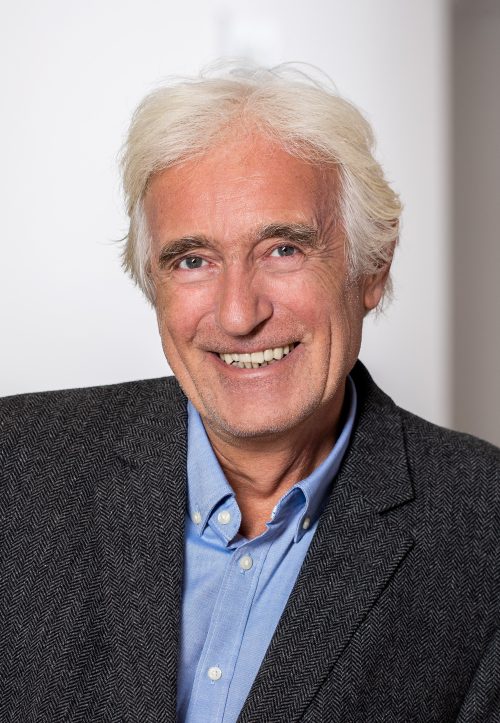This interview was conducted on the occasion of a MERCK podcast recording.
Q: For the past two years, the discussion about our health has mostly revolved around the COVID-19 pandemic. Many other diseases and their risk factors have faded into the background. As a specialist in cardiovascular diseases, how can the turn of the year be an occasion for you to make good resolutions, even in these difficult times? Do you have any resolutions for 2022?
TS: In the short term, our goal must be to do everything we can to end the pandemic as quickly as possible. Regardless of the current situation, however, longer-term intentions necessitate a serious examination of the last phase of life, in which some aspects have gone better or worse. Afterward, intentions can set the goals for the coming years or the next phase of life.
F: What could such goals be for you as a physician and cardiologist?
TS:I would categorize possible goals and the necessary intentions along the way into three major groups:
-
- Approach life’s challenges with a positive mindset and engage in activities that nurture the soul.
- To age physically healthy, incorporating all aspects of prevention, and ultimately
- …to optimize the prerequisites for enjoying mental agility in old age.
F: Aside from all the desirable aspects of taking a positive approach to life’s challenges, how does positive thinking or “doing good for the soul” affect our health?
TS:It is scientifically proven that optimists and/or individuals who accept the aging process positively are less likely to fall ill, have shorter recovery periods, and live longer. Intentions to achieve this can, on one hand, focus on the environment by intensifying contacts with other positive-minded individuals, and on the other hand, through self-reflection. Listening more, showing appreciation, and practicing mindfulness will facilitate this journey. The attempt to start each day with a smile or the famous quote “yes, we can” should end with an evening reflection on the beautiful experiences of the day.
F: Does positive thinking also affect our cardiovascular system?
TS: Yes!
The Danish psychosomaticist Susanne Pedersen once showed the same group both a funny movie and a tragedy. The results showed that hearty laughter led to optimization of cardiovascular function, as evidenced by measurements of blood pressure, heart rate, and circulation parameters.
F: That would indeed be an achievable initial goal! In Ihrem zweiten Ansatz möglicher Vorsätze haben Sie die Gesundheit erwähnt.
TS:In Austria, nearly 39% of people still die from cardiovascular diseases, resulting in premature deaths compared to other European countries. Many of these diseases are attributable to a few modifiable risk factors. Patients with atherosclerosis, a condition affecting the arteries that can lead to heart attacks, strokes, or narrowed blood vessels in the legs, have at least one of the five risk factors in 9 out of 10 cases:
-
- Smoking,
- high blood pressure,
- Diabetes,
- Dyslipidemia, and/or very often in combination,
- with overweight
F: Quitting smoking is indeed one of the most common resolutions.
TS: And one of the most frustrating, although not to be given up on.
It seems important to me to regularly reassess one’s entire risk profile and to know one’s own “weaknesses.” This is a prerequisite, on one hand, through questioning certain individual lifestyle habits, and on the other hand, by minimizing infections as well as regular medication intake under medical supervision and, if necessary, adjusting the dosage accordingly. In some cases, it would also be a positive approach to trust the advice of conscientious doctors rather than the internet or “new media.”
F: This also means: more exercise, fewer sweets, and affects many beloved habits.
TS: Incorporating a bit more movement, like brisk walking or “walking,” two or three times a week, or adopting the tradition I remember from my parents of having a vegetable day, a fish day, and a casserole day each week with overall more vegetables and salad than meat, can be implemented without sacrificing quality of life.
With regard to overweight, in addition to increasing energy expenditure through more physical activity, the famous “FDH” (abbreviation for “Friss die Hälfte,” German for “eat half”) has nothing to do with the quality of food. As snacks, everyone could individually rediscover their favorite raw vegetables or fruits.
F: Recurring important resolutions, for their long-term implementation, could benefit from diet journals or short entries in the calendar. In your third area of goals, you mentioned achieving not only physical but also mental fitness in old age in the long term. What do you mean by that?
TS: One can prevent early mental decline in the long term. For that, one must start in a timely manner or create the conditions.
F: How can I counteract cognitive decline in old age?
TS: Here, besides controlling alcohol intake, there are many ways that should not be neglected but increasingly intensified in a still stressful everyday life: Training mental agility and intellectual openness to new things can involve continuous engagement with expanding questions or approaches to thinking. This is achieved, for example, through reading, regular theater/cinema or concert performances, lectures or discussion groups, activities in clubs or associations, learning new languages or techniques, creative hobbies, solving puzzles or Sudokus, and so on.
Some of the many possibilities should be adopted early and broadly, depending on one’s own interests.
It also seems important not to neglect maintaining social interactions beyond the professional sphere and across generations actively. This can be done not only at the pub but also through shared walks, regular phone calls, or written correspondence via emails or letters.
Here, the circle closes back to my initial approach: approaching the day and the people we encounter with positivity.
F: Professor, thank you for the interview and hope that many readers will take your resolutions to heart and implement them.

Dr. Thomas Stefenelli, MD, is a specialist in internal medicine, cardiology, and angiology, as well as a certified expert witness in court. His professional focus areas include: heart failure, coronary artery disease/angina pectoris, atherosclerosis/vascular diseases, and heart valve diseases.


